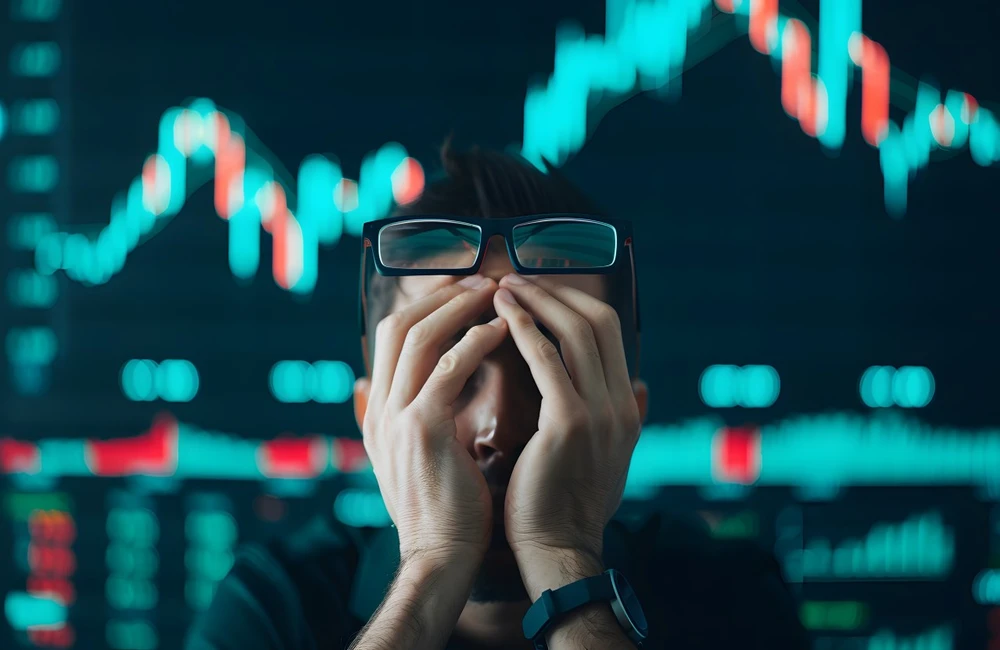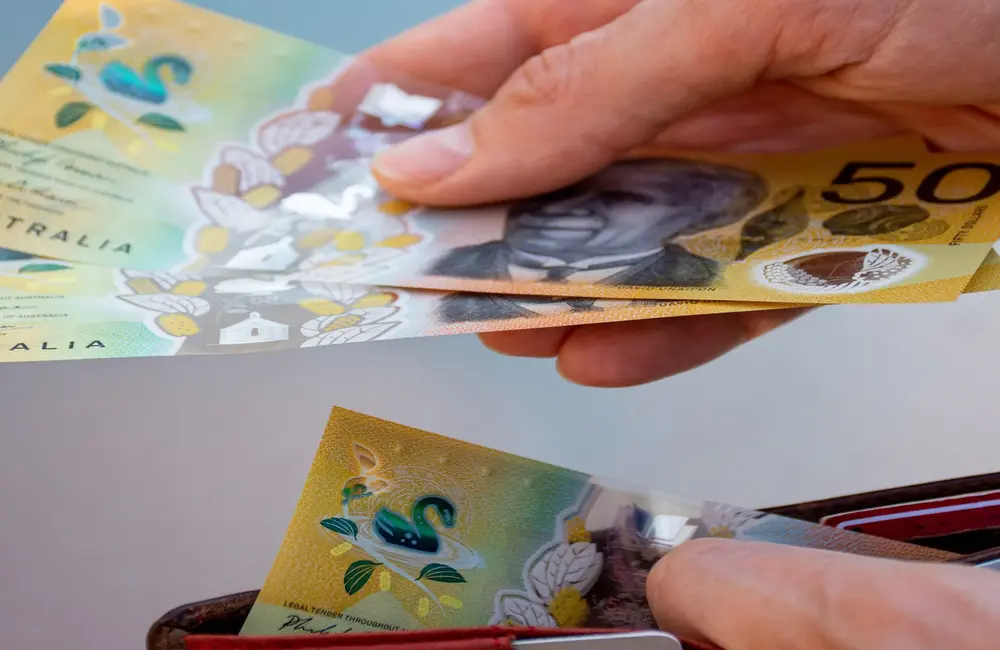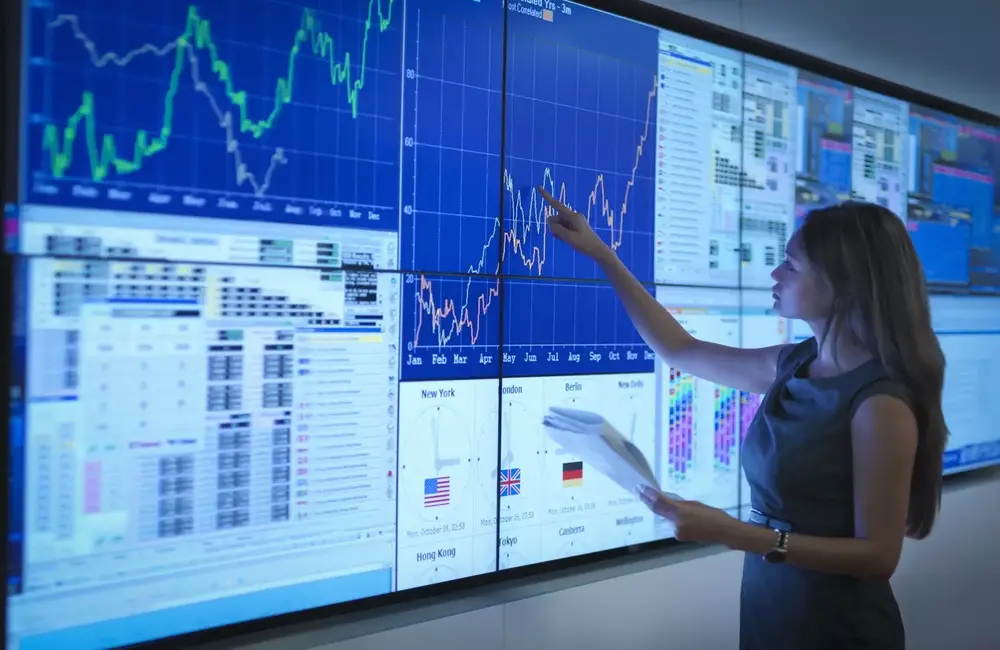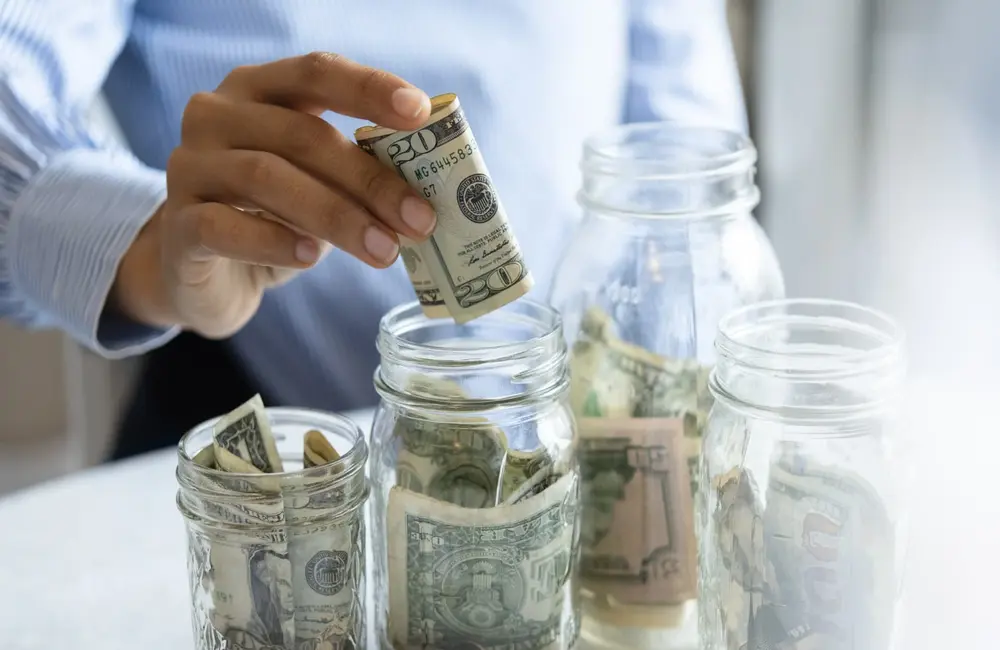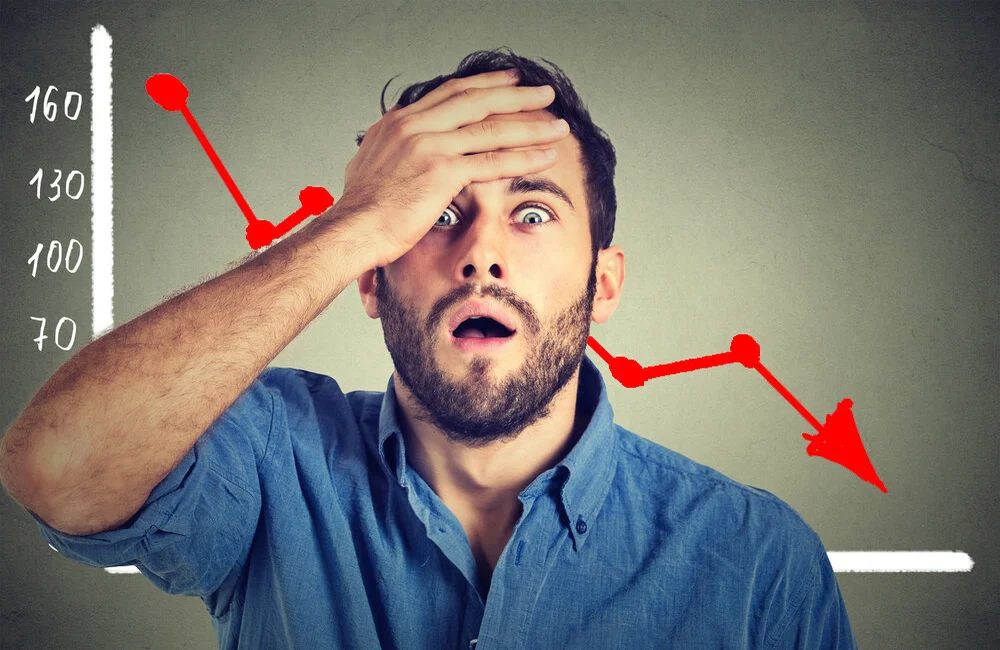US stocks fell toward the end of trade on Monday, hammered by shares of everything from banks to technology companies.
The S&P 500 was 1.3 percent lower, and the Dow Jones industrial average was down about 319 points, or 1 percent. The Nasdaq Composite, filled with technology stocks, fell 1.7 percent.
Stocks are set to finish December down, a relatively rare event. The S&P 500 has advanced 73% in December dating back to 1928, according to Dow Jones Market Data. Since the end of Friday, the S&P 500 had dropped 5.6% for the month to date.
Investors say markets have been under pressure from several fronts. Central bankers from around the world have sounded alarms about their need to keep interest rates at relatively high levels for longer, even as they enjoy recent progress in the battle against inflation. Data on US retail sales has added to some nervousness that consumers are starting to face the pinch of high borrowing costs and inflation.
A surge in Covid-19 cases in China has also led to questions about the recent loosening of pandemic restrictions there.
In commodity markets, Brent crude oil rose 1.05 percent to $US 79.87 a barrel, as gold slipped 0.35% to US$1,786.
Aussie 2 Year government bond yields gained to 3.16%, and 10 Year yields also rose to 3.53%. The rate on 2 Year US Treasury notes outside the US market dropped to 4.25% and the rate on 10 Year US Treasury notes went down to 3.58%.
The Australian dollar bounced to 66.93 US cents from 66.83 at Thursday's close. The WSJ Dollar Index, which measures the U.S. currency against 16 others, slipped to 97.86.
Asia
Chinese stocks closed down, and the Shanghai Composite closed below the 3100 level in the session.
“Not unlike the bears in the woods, when it comes to fighting aggressive Covid-19 containment policies, if you even thought about thinking about turning off the fountains of Covid-19 liquidity after last week’s runaway train reopening, it back to the Alps skies we go,” said Stephen Innes, managing partner at SPI Asset Management.
Shares of consumption-related firms and pharmaceutical sectors, which had been the biggest beneficiaries after the easing of Covid-related restrictions, dragged the market down. Shanghai Fosun Pharmaceutical lost 7.1 percent and Shanghai Jahwa United declined 2.5 percent. The only bright spot during the trading day was the education industry, as Xueda (Xiamen) Education Technology Group added 2.6%. The Shanghai Composite Index fell 1.9 percent to 3,107.12, the Shenzhen Composite Index lost 1.8 percent, and the ChiNext Price Index was down 1.1 percent.
Japanese stocks closed down, weighed by losses in electronics and auto issues, as wariness persisted over the state of the global economy in the face of policy tightening by central banks. Lasertec slumped 4.1% and Inpex slipped 2.9%. Toshiba Corp. lost 6.9% after a report said a group led by Japan Industrial Partners might lower the value for a potential buyout. The Nikkei Stock Average dropped 1.1% to 27237.64. Investors will be zeroing in on the Bank of Japan’s policy meeting outcome Tuesday.
Hong Kong’s Hang Seng Index turned negative and finished down 0.6% at 19352.81, following a rally that was largely driven by the reopening of the city and of China. Pharmacy industries and internet healthcare services gave up earlier gains with Alibaba Health Information Technology down 8.2% and Shanghai Fosun Pharmaceutical falling 7.0%. The vaccine producer Cansino Biologics fell 16 percent. Analysts predict that optimism around the reopening will be offset by the wave of Covid cases overwhelming China, crimping the economy until it bounces back. Some of the biggest gainers were Chinese education companies, with New Oriental Education advancing 7.0% as Beijing pledged to offer more help to support the sector.
Europe
European stocks rose as investors appeared to take an upbeat view amid losses in Asian markets and lingering economic worries. The pan-European Stoxx Europe 600 and the German DAX rose 0.36%, the FTSE 100 was up 0.4%, and the French CAC 40 gained 0.32%.
"Although there's room for a Santa rally here, this seems to be a transitory period of optimism, with fears of earnings declines and a recession in 2023 still playing on market minds," wrote analysts at IG.
The UK economy will slide next year as surging food and wage costs stoke inflation, HSBC has predicted. The economy is expected to shrink in both the first and second quarters of the year, meaning a 0.5% fall in GDP for 2023 overall, followed by a 1.3% growth in 2024, according to HSBC.
The annual inflation figure for November fell to 10.7% down from October's yearly rate of 11.1% -- but food prices and the second-round impact of wage costs are still of concern, HSBC says.
“We continue to expect headline CPI inflation to end 2023 at 5.3% and 2024 at 3.2%,” writes HSBC senior economist Elizabeth Martins, who adds that the Bank of England is set to raise interest rates at least once more, by 0.25 percentage points, to 3.75%, in February.
Corporate borrowing in Germany will cool in 2023 after an almost unprecedented boom in recent months, Deutsche Bank analyst Jan Schildbach wrote in a 2023 outlook note. A surge of lending by public development banks to energy firms followed the impact of inflation, rising interest rates, uncertainties over Ukraine and China, and the European energy crisis in Germany, he says. That has pushed up lending volumes to nonfinancial companies and self-employed individuals on an annual basis, with the first double-digit — at 10.5% — on-year rise since reunification, Schildbach said. But 2022 was an outlier, and the uncertainty should dissipate by the summer, giving firms room to shrink the huge liquidity buffers they built up toward the end of the year, he said. Inflation is also likely to have peaked with businesses able to pass on cost rises to customers, relieving the pressure on margins, he added.
North America
The major American stocks indexes declined toward the end of trading on Monday, dragged down by shares of everything from banks to technology companies.
The S&P 500 dropped 1.3 percent, and the Dow Jones industrial average declined roughly 319 points, or 1 percent. The technology-heavy Nasdaq Composite fell 1.7 percent.
December is gay in to end with a loss in stock shares, an unusual situation. The S&P 500 gained ground in 73% of all December since 1928, according to Dow Jones Market Data. As of the close of trading on Friday, the S&P 500 had dropped 5.6 percent this month.
Investors have said markets have been weighed down by an array of factors. Policymakers around the world have signaled that they may need to take the brakes off their economy more slowly than they had thought, even as there have been signs of a leveling off in the march of inflation. A report on US retail sales has slightly stoked fears that consumers might finally be feeling the pinch of high borrowing costs and inflation.
A rise in Covid-19 infections in China has led to questions about its recent easing of pandemic restrictions as well.
“There is still a great deal of anxiety stubbornly hanging over markets around the never-ending Covid story and concerns over a hard landing because of rate rises,” said Susannah Streeter, senior investment and markets analyst at Hargreaves Lansdown. “We may even have a year-end rally, but we’re going to end up fizzling off because those worries are not gone.”
Stocks Decline After Coronavirus Cases Reach More Than 40,000
Stocks fell broadly on Monday, and every sector of the S&P 500 headed lower on the day.
The Facebook parent Meta Platforms dropped 3.8 percent after the European Union accused it of antitrust violations related to its Marketplace service.
Walt Disney slumped 4.2% after the company’s new release, “Avatar: The Way of Water,” took in less cash than anticipated for its opening weekend.




















